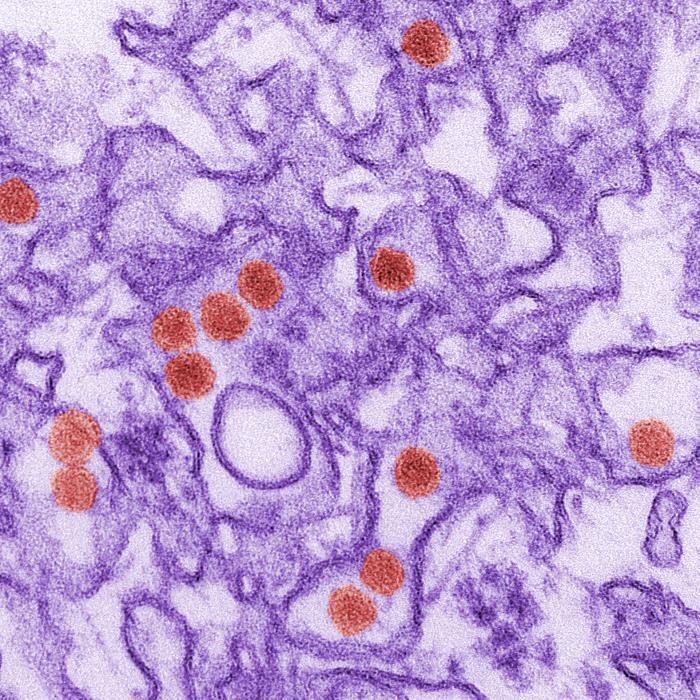Man Gets Zika from Sex with Female Partner, in First

A woman in New York City who was infected with Zika passed the virus to her male partner during sex, marking the first report of female-to-male sexual transmission of this virus.
Previously, all reports of sexual transmission of the Zika virus have been cases of men passing it to their sexual partners, according to the Centers for Disease Control and Prevention (CDC).
The new report "adds to the growing body of knowledge about the sexual transmission of Zika," the CDC said. "Ongoing surveillance is needed to determine the risk for transmission of Zika virus infection from a female to her sexual partners," the report said. [Zika Virus News: Complete Coverage of the 2016 Outbreak]
The woman, who is in her 20s and is not pregnant, had recently traveled to an area with ongoing Zika transmission, according to the report. (The Zika virus is currently spreading in many countries in Central and South America, as well as the Caribbean.)
The day the woman returned to New York City, she had sex with her male partner without using a condom. The next day, she had a fever, rash and joint pain, which are all symptoms of infection with Zika. The woman also started her period that day, and she reported it was heavier than usual.
She soon went to the doctor, and a test detected the Zika virus in her blood and urine samples.
Six days after having sex, the woman's partner also developed symptoms of Zika, and he went to the same doctor that the woman had seen. Tests showed that the man also had Zika, and the doctor suspected that the man may have contracted the infection during sex.
Sign up for the Live Science daily newsletter now
Get the world’s most fascinating discoveries delivered straight to your inbox.
An interview with the man confirmed that he had not been exposed to Zika in any other way; he had not traveled to a country where Zika is spreading, he had not been bitten by a mosquito (which can spread the virus), and he did not have any other recent sexual partners, the report said. The Zika virus is not known to spread through casual contact with an infected person, such as touching or hugging.
"The timing and sequence of events support female-to-male Zika-virus transmission through condomless, vaginal intercourse," the report said. Virus in either the vaginal fluids or menstrual blood could have infected the man during sex, the report said.
The CDC currently recommends that pregnant women either use condoms or abstain from sex if their partners have traveled to areas where Zika is spreading. Zika virus infection during pregnancy can cause a birth defect called microcephaly, or an abnormally small head and brain.
People who are not pregnant but who want to reduce their risk of contracting Zika through sex should use condoms or abstain from sex, the CDC said. The agency also said it is updating its guidelines on preventing Zika transmission through sex.
Original article on Live Science.

Rachael is a Live Science contributor, and was a former channel editor and senior writer for Live Science between 2010 and 2022. She has a master's degree in journalism from New York University's Science, Health and Environmental Reporting Program. She also holds a B.S. in molecular biology and an M.S. in biology from the University of California, San Diego. Her work has appeared in Scienceline, The Washington Post and Scientific American.
Crop circles surround Iraq's multicolored 'Sea of Salt' after years of drought — Earth from space
Watch humanlike robot with bionic muscles dangle as it twitches, shrugs and clenches its fists in creepy video
'The parasite was in the driver's seat': The zombie ants that die gruesome deaths fit for a horror movie










